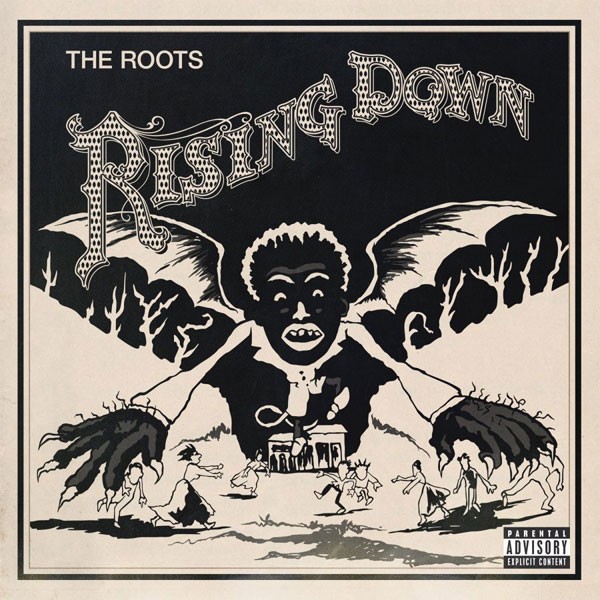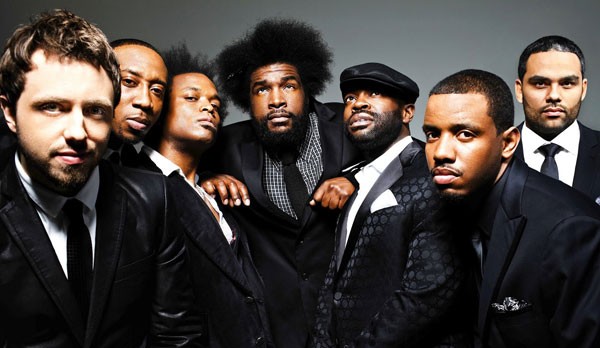Redford Stephens is the semi-fictional protagonist from The Roots' 13th and most recent studio album, Undun. Recorded as a concept album, Undun tells the story, in reverse, of a 25-year-old, inner-city black man whose death is the common result of choosing a life of crime over honest hustles and smarter endeavors. The Roots' renowned drummer, Ahmir "Questlove" Thompson, describes Stephens as one of society's "minions" and, in an interview with The Wall Street Journal's Christopher Farley, he also describes Redford's journey as a metaphor for "the undoing of the everyday man."
Of course, this "everyday man" could be a number of American citizens: a laid-off factory worker who can no longer support his family, a recent college graduate who can't afford to pay off her student loans, an ailing citizen without adequate health care, a returning veteran of the war in Afghanistan finding it difficult to adjust to civilian life, or a woman whose reproductive rights are under siege.
As the Democratic National Convention convenes in Charlotte over the next week, these issues and more will be on the table. The goal will be to get President Barack Obama elected to a second term so these "minions" have access to a chance at the prosperity their affluent counterparts cradle. Musically, there's no better group than The Roots, who will be performing at a private party at Amos' Southend on Sept. 3, to reinforce the cause. You wouldn't necessarily label the Philadelphia hip-hop band as an overtly political group like, say, U2 or Rage Against the Machine, but The Roots' 25-year recording career is splattered with socio-political, think piece lyrics and progressive, agitprop musicality.
Furthermore, consider The Roots' overt political statements. Over the past year, Questlove found himself in the middle of a police raid at Zuccotti Park during Occupy Wall Street and, last November, caught fire for his decision to play Fishbone's "Lyin' Ass Bitch" as former Republican presidential candidate Michele Bachmann was introduced on Late Night with Jimmy Fallon.
Then, consider The Roots' 2008 LP, Rising Down, which was released several months before Barack Obama was elected as the nation's first black president — an election Questlove actively took part in by canvassing select L.A. neighborhoods and campaigning door-to-door. Rising Down's cover art featured a rendition of the political cartoon entitled, "The Vampire that Hovers Over North Carolina (Negro Rule)," which ran in the Sept. 27, 1898 edition of Raleigh's daily newspaper, the News and Observer. The original cartoon addressed the 1898 election and charged that appointing newly-freed African Americans to public office would result in lawlessness. Similarly, President Obama's 2008 campaign came under some of the same kinds of inflated, racist attacks.

Throw all of that out, and you're left with a group, made up mostly of black musicians, which is deemed "safe" enough to land a year-round gig as the house band of a major network, late-night talk show, and still courageous enough to further the canon of socially aware, planet-rocking hip-hop and soul music.
The core members of The Roots have proven to be forward-thinking. Black Thought's dexterity as both emcee and mouthpiece goes unmatched. There's drummer Questlove's unlimited adaptability. Lastly, James Poyser's gift as a prolific songwriter is elegantly charming. It's no wonder that The Roots appeal to a large cross-section of the American people without being relegated to tokenism or mainstream turpitude.
In May 2007, I attended a free outdoor concert by The Roots on the banks of the James River in Jamestown, Va., for the town's 400th anniversary. On those same docks, four centuries earlier, tens of thousands of captives were unloaded and sold in auction houses at the nearby Shockoe Bottom area. For this reason, The Roots initially entertained the idea of cancelling their performance at this event which, to them, was ostensibly a celebration of the genocide and enslavement of African people.
However, before they went into their routine cover of Bob Dylan's "Masters of War," Questlove sat at his drum kit draped with a huge American flag, grabbed a microphone and addressed the crowd. He carefully articulated how ironic it was that a band with their political position — which is "anti-terrorism, anti-police brutality and anti-genocide" — was performing on this occasion. He added, "Hip-hop has totally lost its balls to express anything political."

On that day, Redford Stephens would have been 33 and, like me, he would have glared over at the James River — eerie and abused, but finally done with America's undoing, and rocked to eternal sleep by The Roots guitarist "Captain" Kirk Douglas, belting Dylan's lyrics, "I hope that you die," across the water.
That night, that old America officially passed away, and for Redford Stephens' and all of our sakes, the Legendary Roots Crew will do everything in its political power to keep the new one alive.